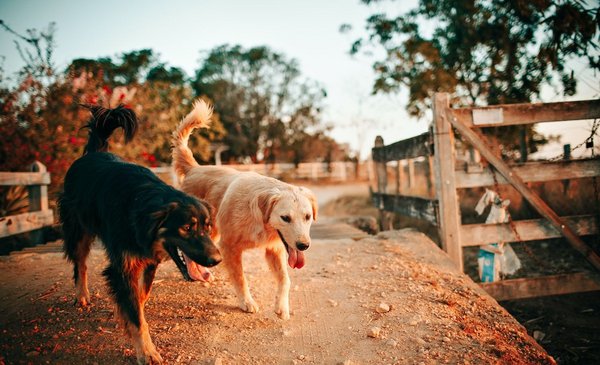A bill poses charging dog owners for attacking farm animals whatever a fine 10 times the value of the injured or dead animal. The reference price will be the one established by the last publication of the Association of Livestock Shippers (ACG) of the month in which the attack happened. If the attacked animals are of pedigree, the value will be determined by the market in the sale of animals of similar condition.
The project, drafted by the deputy of Cabildo Abierto Rafael Menéndez, was presented this week in Parliament and aims to “mitigate the damage suffered by producers,” the author explained to The Observer.
For the deputy, “this bill will not provide a solution (to the problems caused by pack attacks), because there are no magic solutions in this, but it will help mitigate the damage caused by packs at the rural level.”
“With the pocket we learn”
Understanding that this problem occurs mainly in rural areas, and convinced that “producers are responsible”, Menéndez stressed that “it has to hurt in the pocket for animal owners if their dog attacks another animal. Like all Uruguayans, we learn with our pockets, a high sanction is necessary, ”he added.
john samuel
The bill seeks to “mitigate the damage to producers.”
For the country, not the city
This project is aimed at rural areas and nearby towns, not for those who have dogs in big citieshe indicated.
In addition, it is suggested exempt from the payment of the annual license for dogs to the canine holders who castrate and chip them.
On the other hand, all those dogs that are transported in vehicles must be chipped and have the certificate issued by the National Institute of Animal Welfare (INBA).
locked in the night
The exemption from payment of the patent is a stimulus, he stressed, adding that another component of the proposal is that those who have dogs that are not neutered or chipped must keep them locked up on their property “during the period between sunset and sunrise”. This was raised considering that most attacks on farm animals occur at night.
It was also proposed expand the registry of the Livestock Controller Division (Dicose) to dogsto have data on the number of canines in rural establishments, as well as their characteristics.
Fines of up to 100 UR
Dog owners who fail to comply with some of the obligations posed by this project – in the event that it becomes law, without modifications – must pay fines that will range from 5 to 100 readjustable units.
The amount to be paid will be defined depending on the infraction and if there is a record. The money collected from the sanctions will be administered by the INBA and allocated to the program to strengthen dog shelters.
INBA “delayed”
Menéndez indicated that when it comes to how to get dogs off the street, many times “they end up talking about going out to kill dogs or going back to the kennels, and in the 21st century no one is going to do that. That is why we have to see what we can do to be able to move forward on the issue.”
“The tasks of INBA, which are very important, are still long overdue,” he added about this problem.
He said, the proposals do not conflict with the objectives of the INBA or with Law 18,471 on dog ownershipbut seeks to help, mainly to verify empirically how these attacks affect, because, as he stressed, there is no information about the number of complaints, the most problematic places or the number of animals affected.
Here is the full bill:
Bill by Analia Pereira on Scribd

















